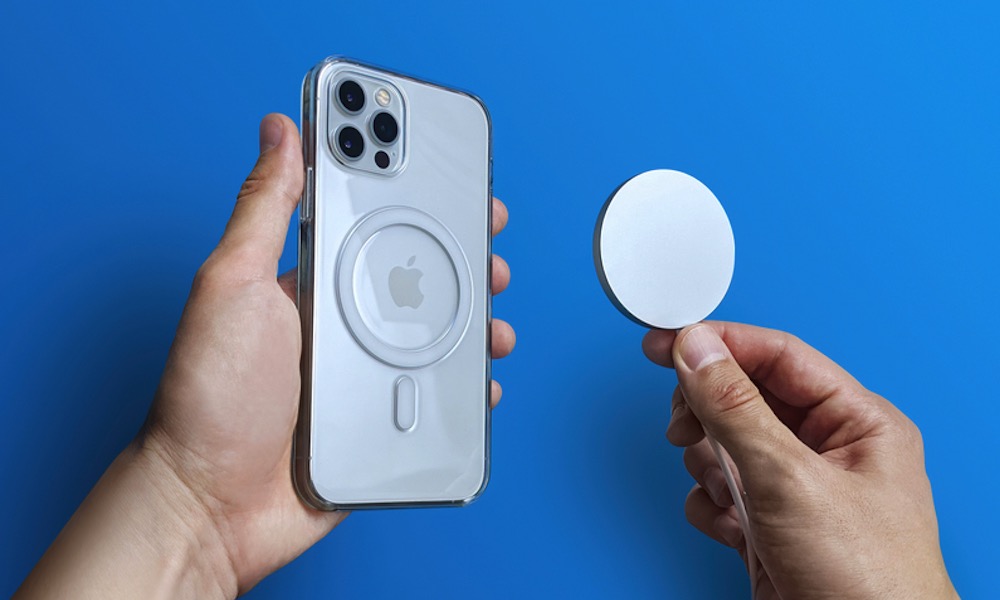FDA Says MagSafe’s ‘Risk to Patients Is Low’ for Implanted Medical Devices like Pacemakers
 Credit: Mr. Mikla / Shutterstock
Credit: Mr. Mikla / Shutterstock
Toggle Dark Mode
Earlier this year, a study in the Heart Rhythm Journal raised an alarm bell about the impact that the iPhone 12’s MagSafe technology could have on users with implantable cardioverter-defibrillators (ICDs), revealing that the magnetic field emitted from the back of an iPhone 12 could shut down some implantable medical devices if placed in close enough proximity.
The study pointed to the “strong magnetic array in the iPhone and MagSafe compatible cases” as a point of concern, and proved during multiple tests that bringing an iPhone close to the left chest area of a patent with an ICD would result in “immediate suspension of ICD therapies” for as long as the device remained in proximity.
While researchers acknowledged that other studies have shown “minimal risk of electromagnetic interference” from older smartphones and fitness trackers, the report implied that the magnetic ring found on the back of the iPhone 12 presented a somewhat slightly higher risk than other electronic devices.
For its part, Apple clarified its position in an update to its support documents, which recommended that users keep iPhones and MagSafe accessories at least six inches away from pacemakers, defibrillators, and other similar implantable medical devices.
However, Apple also noted that even though “all iPhone 12 models contain more magnets than prior iPhone models,” they don’t actually pose any greater risk of magnetic interference than any other iPhone — and now it looks like the FDA agrees.
In a press announcement yesterday, Dr. Jeff Shuren, the director of the Center for Devices and Radiological Health shared that the agency had conducted its own testing to confirm the effects of “certain newer cell phones, smartwatches, and other consumer electronics with high field strength magnets” on implanted electronic medical devices.
We believe the risk to patients is low, and the agency is not aware of any adverse events associated with this issue at this time.
Jeff Shuren, M.D., J.D., director of the FDA’s Center for Devices and Radiological Health
As a result of these tests, Dr. Shuren says the agency concluded that the “risk to patients is low,” and that the FDA has no indication that there have been any cases where electronic devices that include magnets have caused any problems.
That said, a “low risk” is not a “zero risk,” and Dr. Shuren adds that anybody with an implanted medical device should speak with their health care provider to understand possible risks and make sure they know the proper techniques for safe use.
The release goes on to add that this could become a greater point of concern as the number of consumer electronics that include strong magnetics is only going to increase over time. Notably, however, the report does not single out MagSafe technology, nor the iPhone 12 as being any more of a problem than any other modern cell phone or smartwatch.
To this end, the FDA has also released an advisory that reiterates that users with implanted medical devices should keep consumer electronics at least six inches away, and should most definitely not carry them in a shirt pocket that’s near the medical device.
It is important to emphasize the following: to avoid interference between cell phones and smart watches and your heart device, keep them at least six inches (15 centimeters) away from implanted medical devices. Also, do not place cell phones, smart watches, and other consumer electronics close to your implanted medical device.
FDA
While the text of the report doesn’t mention any specific products, it’s safe to assume that it’s based largely on recent issues surrounding the iPhone 12, as the “Related Articles” section at the bottom of the advisory specifically lists two studies related to the iPhone 12 MagSafe technology, followed by a direct link to Apple’s own MagSafe support article.
Ultimately, however, even if the iPhone 12 does indeed have a slightly higher impact on ICDs than older iPhone models and other consumer electronics, almost every cell phone, smartwatch, and fitness tracker presents enough of a risk of interference that precautions should always be taken. In this sense, there’s nothing that iPhone 12 users with ICDs need to do differently than they would for any other electronic device. Whether it’s an iPhone 12 with MagSafe or a ten-year-old iPhone 4, the FDA’s recommendations remain the same: Always keep your iPhone at least six inches away from any implanted medical devices.






